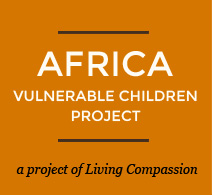For weeks we have been looking forward to what is often the most fun part of every trip to Zambia: the first drive out to our project in Kantolomba Compound, where we are reunited with our many good friends there. After endless preparations and two days of travel, the moment finally arrived on Friday morning. Muyunda picked us up bright and early and at last we were off!
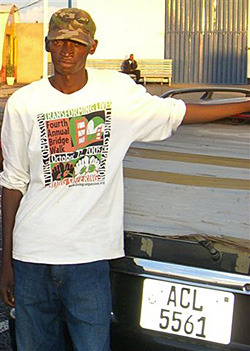
Muyunda
We attempted to capture the approach to the property and the scene there as we arrived in this short video:
As we climbed out of the car, people began to gather to greet us from all over the property. What fun it was to hug, to shake hands, and to smile with so many beautiful people! Soon the women broke out into a song of welcome, and another song of appreciation for Living Compassion and the difference the project is making in their lives. After the singing, one by one each of the Kantolomba team, all forty of them, introduced themselves to Alex, who has not met them before.
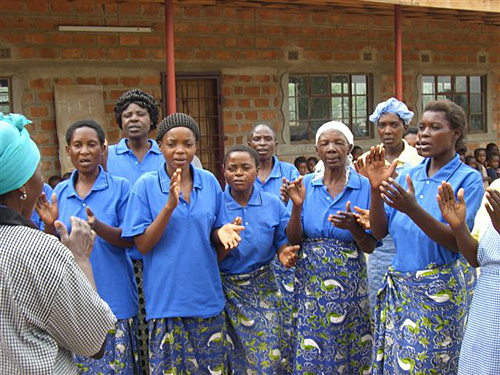
Kantolomba Team
Afterwards, we went on a tour of the property to admire all the changes that have happened since we were last here, and all that has been accomplished since the project began. The tour was particularly moving for Alex, who was here once before several years ago, when the project was only an idea. "Look!" Theresa told him, "See all we have done!"
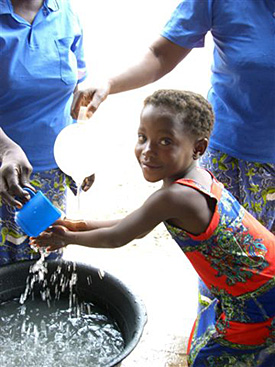
Washing up before eating
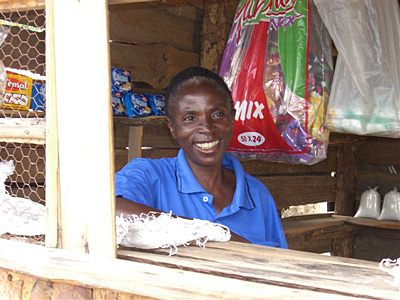
Regina in the tuck shop
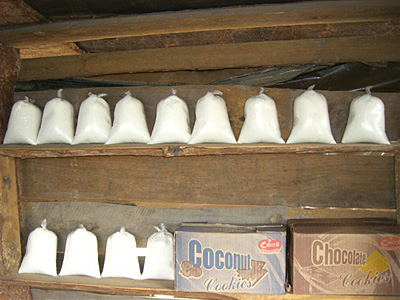
Little bags of mealy-meal inside for sale
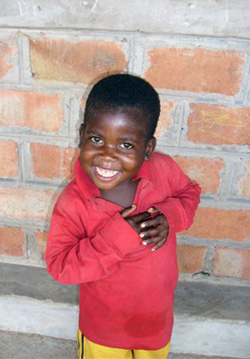
The standard displays of cuteness
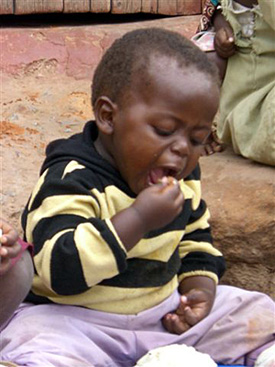
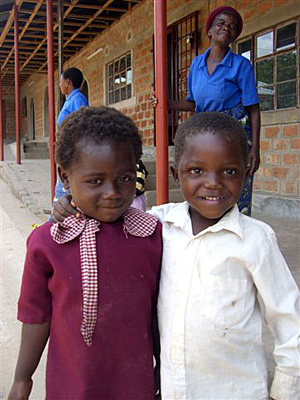
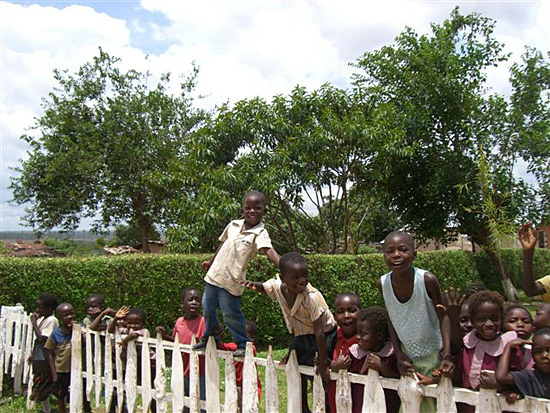
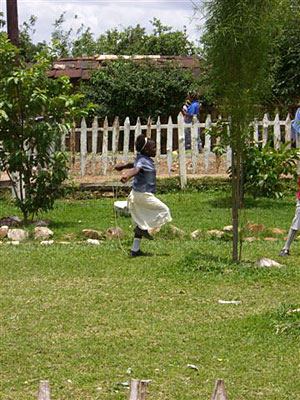
Children Playing
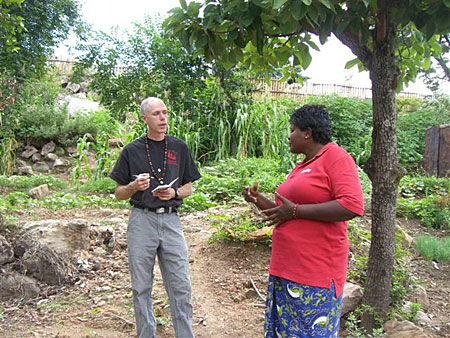
Taking notes on the tour
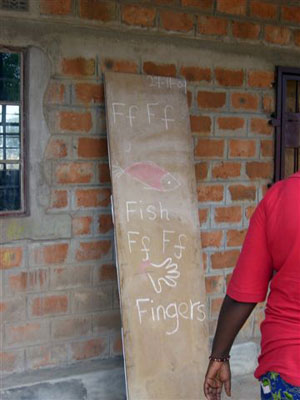
Words of the day that start with "F"
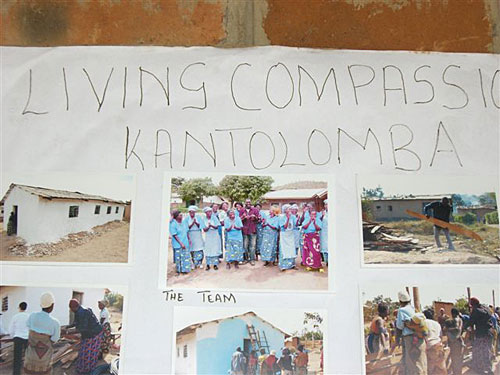
Community bulletin board
Once the tour and all the celebration was finished, we sat down with Theresa and the team to sketch out a plan for our week-long visit. Tomorrow we will have a meeting with the whole team to discuss priorities and vision for the future. We also hope to visit the farm where the people are growing food for the feeding program. On Sunday we will have a concert in the afternoon--we want to record the beautiful singing of the people here in the hopes that we can make a CD to sell to raise funds for the project. And on Sunday we will begin in earnest with the larger projects planned for this trip. There is a lot of excitement ahead!
A short time later we headed back to town, grabbed a quick lunch, then headed for Kitwe, an industrial town forty minutes away, in search of a "hammermill" for the cooperative.
A hammermill is a machine that grinds corn into meal. Corn is the staple food here in Zambia. It is ground into a fine powder called "mealy-meal," which is then cooked into a thick porridge. For some time we have been looking for ways to help the project become more financially self-sufficient and, therefore, more sustainable long-term. The purchase of a hammermill will be our largest effort so far in that direction. The cooperative can use the machine to grind the corn they grow themselves and to grind for others in the community for a small fee.
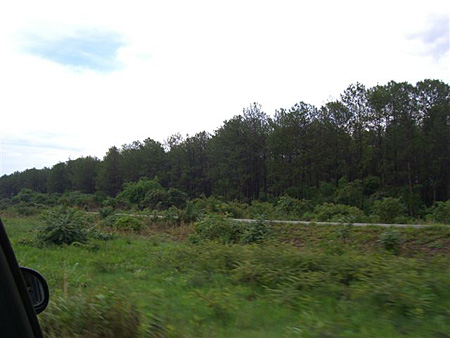
On the way to Kitwe
On the way to Kitwe we were stopped at a roadblock and motioned to the side of the road. The police officer in charge said that the car was not registered correctly and required us to go with him to the police station to pay a fine. This seems to be part of the regular driving experience here in Zambia. We pleaded with him to let us go, saying we would get the problem taken care of right away, but he was adamant. We did persuade him, though, to go with us to the hammermill shop first so that we would not lose our opportunity. It was late afternoon by this time, and the shops were soon to close.
We were impressed by the hammermill. It is a single-piston diesel machine that will grind 500 kilos of corn in one hour. We will not actually buy the machine until the next trip to Zambia, in January, because we will first need to build the structure that will house it. We took the measurements, made sure we understood how the hammermill needed to be mounted to the floor, and then left for the police station.
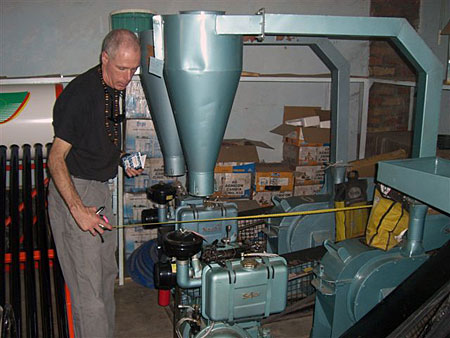
The hammermill
To make a long story short, we got off without having to pay a fine. This required a half-hour of energetic negotiations in Bemba, but Theresa finally convinced the officer that we were unwilling to pay any money, and he let us go. Before we left, however, he asked us what we are doing here in Zambia. We explained, and we showed him some of the photos we had taken of the children that morning. To our surprise, he seemed quite moved by what we are doing, and said he would talk to his church to see if they would like to help out. It was easy to see in this both the power of the work we are doing here and the goodness that lives in all people. It was a wonderful way to finish the day.
